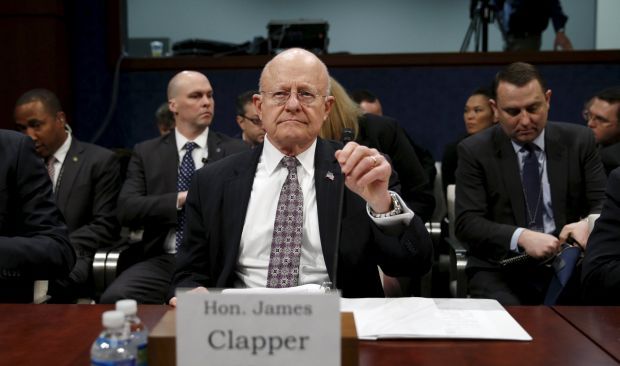
Director of National Intelligence James Clapper said he had a very high level of confidence that Russia hacked Democratic Party institutions and operatives, as well as disseminating propaganda and fake news aimed at the Nov. 8 election, according to Reuters.
"Our assessment now is even more resolute than it was" on Oct. 7 when the government first publicly accused Russia, Clapper told a hearing of the Senate Armed Services Committee. He said a motive for the attack would be made public next week.
Read alsoU.S. senators vow no "Faustian bargain" with Russia - RFE/RLLawmakers from both parties are wary of Moscow and distrust Trump's praise of Russian President Vladimir Putin and efforts to heal the rift between the United States and Russia.
Thursday's hearing, overseen by Republican Senator John McCain, a leading Russia critic in Congress, was the first in a promised series of hearings into allegations that Russia tried to disrupt or influence the U.S. campaign, one of the most bitter in recent history.
Democrats and Republicans on Thursday called for more economic sanctions and other action against Russia.
Read alsoNew sanctions, expulsion of diplomats "not the sum total" of response to Russia’s aggressive activities – ObamaClapper did not say what made him confident that Russia was behind the cyber attacks, but that conclusion is shared by U.S. intelligence agencies such as the CIA and several private cyber security firms.
Moscow denies the hacking allegations. President Barack Obama last week ordered the expulsion of 35 Russian suspected spies and imposed sanctions on two Russian intelligence agencies he said were involved in hacking U.S. political groups such as the Democratic National Committee (DNC).
Trump will be briefed by intelligence agency chiefs on Friday on hacks that targeted the Democratic Party in the run-up to the election, which the New York businessman surprisingly won against former secretary of state Hillary Clinton.
"I don't think we've ever encountered a more aggressive or direct campaign to interfere in our election process than we've seen in this case," said Clapper, who leaves when Trump becomes president on Jan. 20. Clapper stopped short of declaring Russia's actions "an act of war," saying that determination was beyond the scope of his office.

